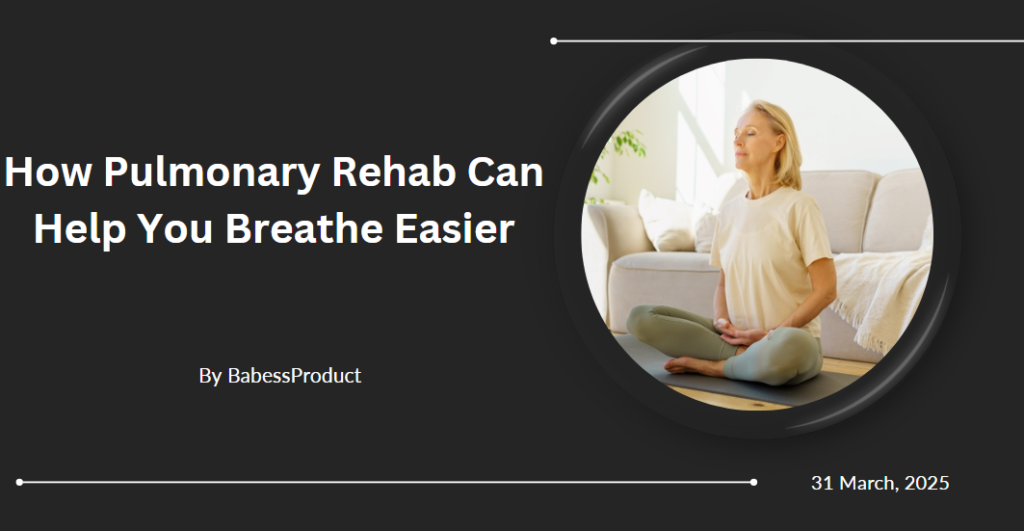Living with chronic respiratory conditions can often be complex. Pulmonary rehabilitation (or rehab) offers a structured approach to improve respiratory health and overall well-being. Whether you’re managing conditions like asthma, COPD, or pulmonary hypertension, pulmonary rehab could be a beneficial program to explore. Here is more information on this rehab, who may benefit from it, what is involved in the process, and how it can help you breathe easier:
What Is Pulmonary Rehab?
Pulmonary rehab is a medically supervised program designed for individuals with lung-related conditions. Its primary goal is to improve lung health and enhance quality of life. This rehab combines education, exercise training, and breathing strategies for a comprehensive approach to respiratory care.
Typically overseen by a multidisciplinary team of healthcare professionals, the program addresses physical and psychological aspects of living with lung conditions. While it is tailored to an individual’s condition and capabilities, all participants gain tools to manage their symptoms better. It may also help patients maintain an active lifestyle.
Who Could Benefit From It?
This type of rehab is intended for individuals living with a range of respiratory conditions. This includes those diagnosed with chronic obstructive pulmonary disease (COPD), asthma, or pulmonary hypertension. It may also support individuals managing interstitial lung disease, congenital disorders, or cystic fibrosis.
Other groups who may benefit include those recovering from lung cancer treatments or managing sleep-related issues. This includes snoring or obstructive sleep apnea. Anyone experiencing ongoing respiratory symptoms or reduced lung function should discuss pulmonary rehab with a healthcare professional.
What Does This Rehab Involve?
A typical rehab program includes several key components. One of the main aspects is personalized exercise training. These exercises are carefully chosen to improve cardiovascular and muscular endurance while being mindful of lung capacity.
Another core element is education. Participants learn about lung health, symptom management, medication use, and strategies to conserve energy during daily activities. Breathing exercises, such as pursed-lip and diaphragmatic breathing, are also introduced to help control breathlessness.
Psychosocial support may be part of the process. Adjusting to life with a chronic condition can be challenging. Rehab programs frequently include resources to address mental well-being for a more comprehensive approach to managing overall wellness.
How Can It Help You Breathe Easier?
Pulmonary rehab targets several areas that help improve breathing and overall respiratory function. Through exercise training, the lungs and muscles become more efficient, reducing the effort required to perform physical activities. This enhanced endurance can make daily tasks feel less taxing.
Learning new breathing techniques is another benefit. These methods help individuals manage shortness of breath during flare-ups or while engaging in activities. The education and self-management skills gained during rehab can improve the ability to handle respiratory challenges.
Participants may report a decrease in symptoms over time. This includes symptoms like breathlessness and fatigue. Effective management and treatment improve physical capabilities, contributing to an enhanced quality of life.
Seek Expert Guidance Today
Pulmonary rehab offers a structured pathway to manage respiratory health better and make everyday breathing more manageable. By participating in this treatment, you can access expert support, personalized care, and tools to live more comfortably with your condition. If you think this rehab might be a good fit for you or your family member, consult a healthcare professional. Take that first step toward improved respiratory well-being today.

